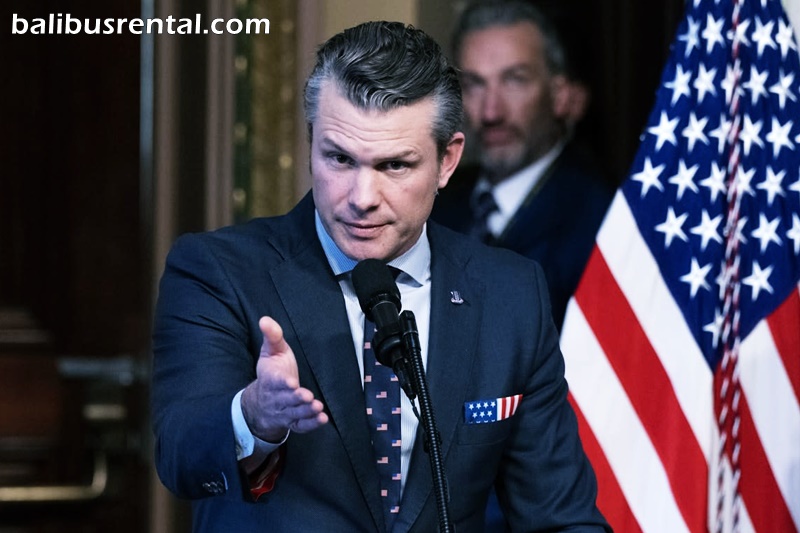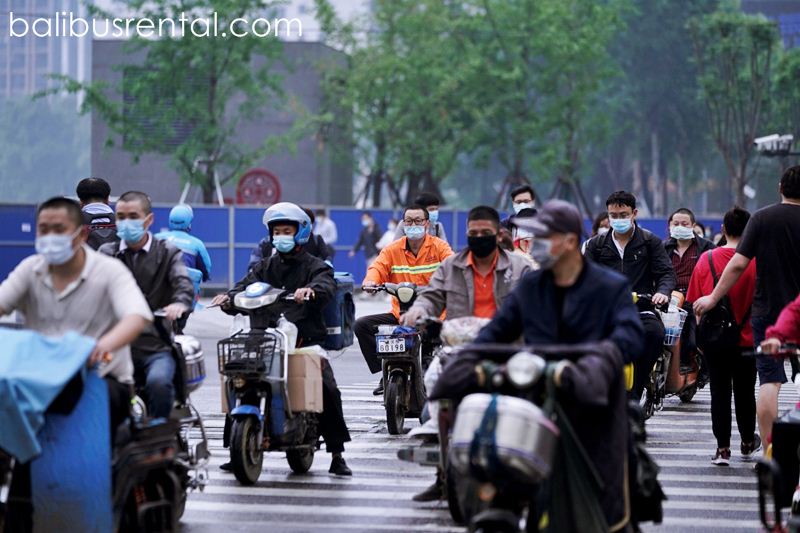Friday | May 30, 2025
U.S. Defense Secretary Pete Hegseth Warns of Imminent Threat from China, Urges Allies to Bolster Defense Cooperation
SINGAPORE, May 31, 2025 — U.S. Defense Secretary Pete Hegseth issued one of the strongest warnings yet from the Trump administration regarding China’s military ambitions, declaring that Beijing’s growing assertiveness — particularly toward Taiwan — represents a grave and possibly imminent threat to global peace and stability. Speaking at the annual Shangri-La Dialogue, Asia’s premier security and defense summit, Hegseth called on America’s allies and partners in the region to do more to deter Chinese aggression and maintain the balance of power in the Indo-Pacific.
“There is no reason to sugarcoat it. The threat China poses is real. And it could be imminent,” Hegseth said to a packed audience of defense ministers, military officials, and analysts in Singapore.
He emphasized that China’s military, the People’s Liberation Army (PLA), is not just modernizing but actively preparing for a potential invasion of Taiwan, a democratic island of 23 million people that Beijing claims as its own territory — despite never having governed it.
“Beijing is credibly preparing potentially to use military force to alter the balance of power in the Indo-Pacific,” Hegseth stated. “The PLA is building the military needed to do it, training for it every day and rehearsing for the real deal.”
Citing intelligence assessments and U.S. defense analysis, Hegseth pointed to Chinese President Xi Jinping’s directive for the PLA to be ready to invade Taiwan by 2027 — a timeline that is driving urgent concern within U.S. strategic circles.
A Call to Action for Allies
Hegseth’s speech carried a pointed message for U.S. allies in Asia: the United States cannot deter China alone. He urged regional partners to step up defense spending and strategic coordination, noting that the evolving threat environment demands shared responsibility.
“We ask — and indeed, we insist — that our allies and partners do their part on defense,” he said. “Be a force multiplier, not a bystander.”
The defense secretary praised NATO allies in Europe for increasing defense budgets in response to threats from Russia, with some committing up to 5% of their GDP toward military readiness. He contrasted this with what he described as underwhelming defense contributions from some Asian allies, particularly in the face of what he called “an even more formidable threat” from China and an unpredictable North Korea.
“It doesn’t make sense for countries in Europe to stretch their budgets to defend against Russia while our key partners in Asia underinvest, even as Chinese warships patrol their waters and missiles fly over their territory.”
Trump’s Stance: No Retreat, No Surrender
Hegseth reiterated President Donald Trump’s firm commitment to preventing Taiwan from falling into Beijing’s hands, saying the U.S. would stand firm in the face of any Chinese aggression. Despite the administration’s combative tone, Hegseth stressed that Washington does not seek war with China, but rather a stable Indo-Pacific governed by international law, open seas, and peaceful resolution of disputes.
“We will not be pushed out of this critical region, and we will not let our allies be subordinated and intimidated,” he said.
Fractured U.S.-China Dialogue
Hegseth’s remarks come at a time when direct military-to-military communications between the U.S. and China are at a low point. In a sign of the deepening rift, China declined to send its defense minister to the Shangri-La Dialogue, breaking from tradition in recent years. Instead, a low-level delegation from China’s National Defense University was dispatched. The usual high-profile speaking slot reserved for a Chinese representative was notably absent from the event’s agenda, a move interpreted by many as a diplomatic snub.
At a Chinese Defense Ministry press briefing earlier this week, officials dodged questions about the defense minister’s absence, offering only that China “remains open to communication at all levels” — though no bilateral talks between U.S. and Chinese delegations are expected on the forum’s sidelines this year.
A Harder Line Than Biden?
Hegseth’s call for allied unity continues a key tenet of previous U.S. policy under President Biden — deterring Chinese aggression through collective defense. But Trump’s return to office has brought a noticeably more strident tone, with greater emphasis on pushing allies to increase their commitments and reduce dependency on the U.S. military umbrella.
In contrast to the sometimes erratic posture the Trump administration has shown in Europe — including threats to withdraw from NATO and curtail support to Ukraine — U.S. policy in Asia has been comparatively stable. Analysts note that military cooperation with key Asian allies such as Japan, Australia, South Korea, and the Philippines has remained robust, with several large-scale joint exercises conducted this year.
“Despite the noise in Europe, in Asia the U.S. presence has remained steady, and the focus on countering China hasn’t changed — it’s only intensified,” said a senior analyst at the International Institute for Strategic Studies.
Rising U.S.-China Tensions
The defense dialogue comes against a backdrop of increasingly volatile U.S.-China relations, not only in the military domain but also economically. Earlier this year, President Trump imposed sweeping tariffs on Chinese goods, some exceeding 100%, prompting retaliatory measures from Beijing and plunging the two countries into a new phase of economic confrontation.
Hegseth’s remarks are likely to further strain bilateral ties, but U.S. officials say deterrence, not escalation, remains the goal. They hope that a clear, united stance among Indo-Pacific allies will convince Beijing to seek peaceful solutions rather than military action.
“China’s behavior towards its neighbors and the world is a wake-up call. And an urgent one,” Hegseth warned. “The time to act is now.”




